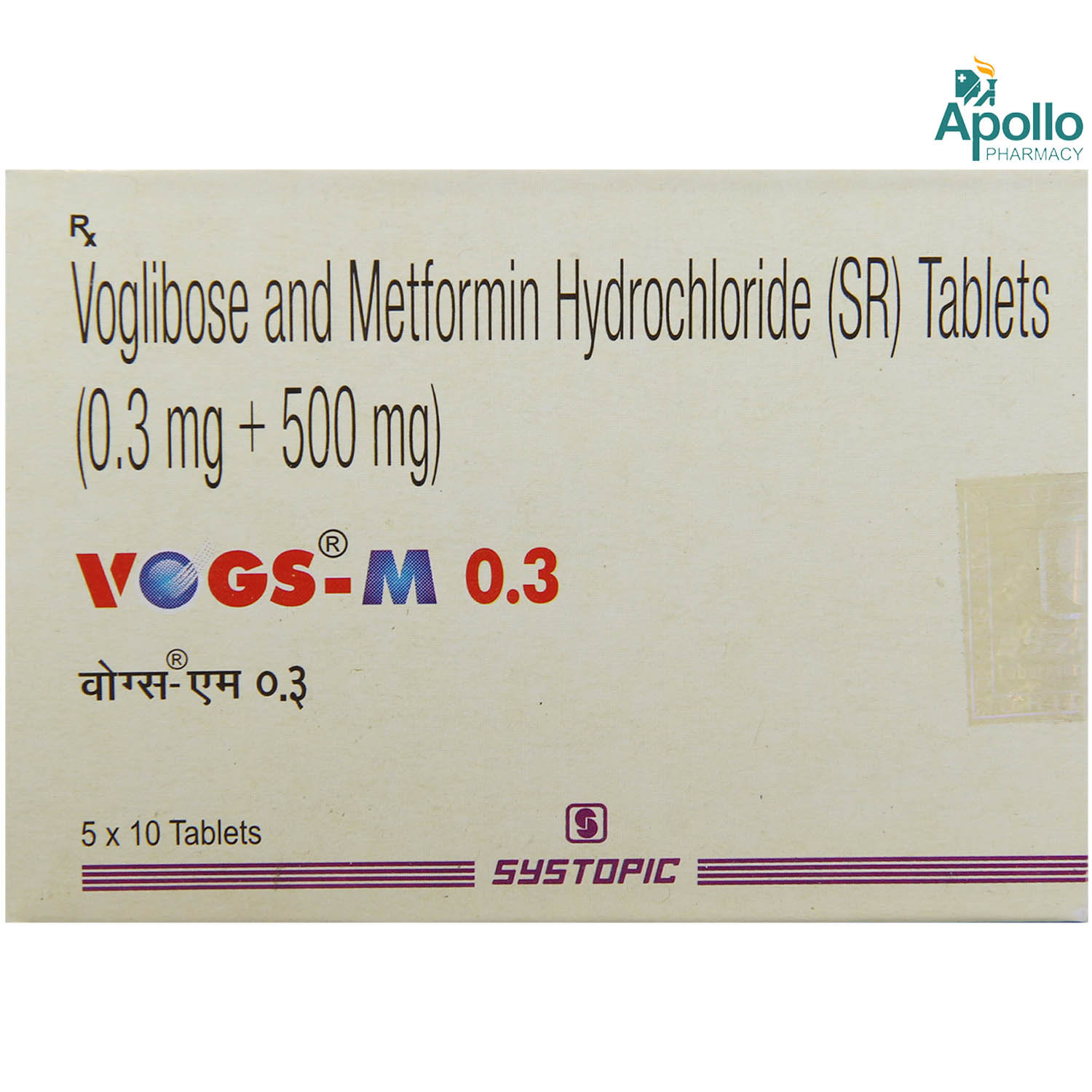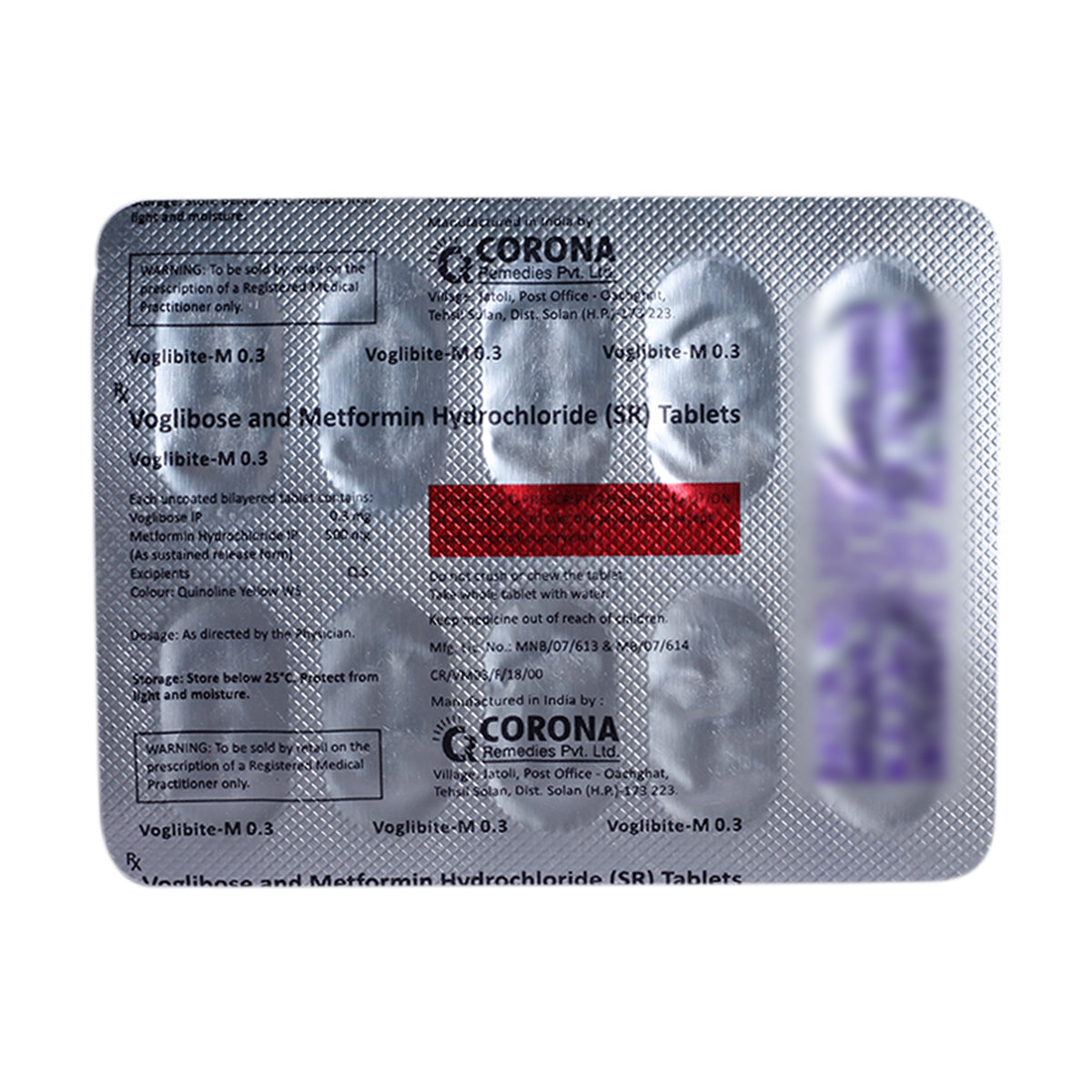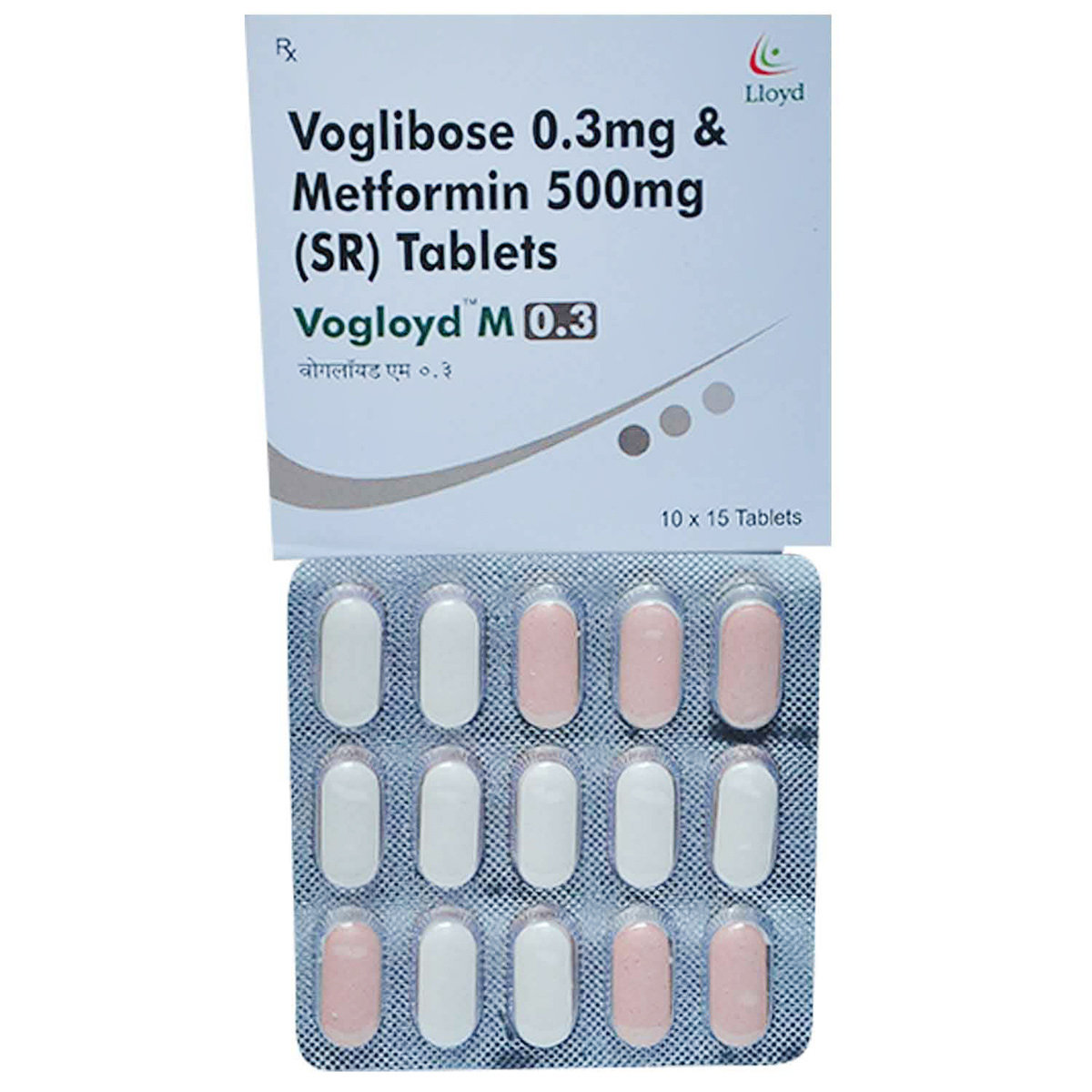VOLGA M 0.3MG TABLET 10'S
MRP ₹60.15
(Inclusive of all Taxes)
₹9.0 Cashback (15%)
Know Your Delivery Time
Provide Delivery Location

Secure Payment

India's Most Trusted Pharmacy

Genuine Products
Composition :
Manufacturer/Marketer :
Consume Type :
Expires on or after :
Return Policy :
About VOLGA M 0.3MG TABLET
VOLGA M 0.3MG TABLET is used in the treatment of type 2 diabetes mellitus. Diabetes mellitus is a metabolic disease that causes high blood sugar levels. It occurs when the insulin is resistant in breaking down glucose to produce energy (insulin resistance) or the pancreas (an organ behind the stomach) produces little or no insulin at all.
VOLGA M 0.3MG TABLET contains Voglibose and Metformin. Voglibose acts by inhibiting the intestinal enzymes, which break complex sugars into simple sugars such as glucose. Metformin reduces serum glucose levels without increasing insulin secretion. It is also known as an insulin sensitiser as it increases the effects of insulin.
The common side effects of VOLGA M 0.3MG TABLET include nausea, vomiting, changes in taste, diarrhoea, stomach pain, and loss of appetite. Most of these side effects do not require medical attention and typically resolve on their own over time. However, if the side effects persist or worsen, consult your doctor.
Do not take VOLGA M 0.3MG TABLET if you are allergic to any of its components. Consult your doctor if you are pregnant or breastfeeding. The safety and effectiveness of VOLGA M 0.3MG TABLET in children have not been established. Avoid consuming alcohol during treatment with VOLGA M 0.3MG TABLET .
Uses of VOLGA M 0.3MG TABLET
VOLGA M 0.3MG TABLET is used in the treatment of type 2 diabetes mellitus. The detailed uses of VOLGA M 0.3MG TABLET are as follows:
- Management of type 2 diabetes mellitus: Helps control high blood sugar levels in adults with type 2 diabetes.
- Improves insulin sensitivity: Metformin enhances the body's response to insulin and reduces glucose production by the liver.
- Delays glucose absorption: Voglibose reduces the breakdown and absorption of carbohydrates in the intestine, thereby avoiding post-meal sugar spikes.
- Reduces risk of diabetes complications: VOLGA M 0.3MG TABLET helps reduce the risk of kidney damage, nerve disorders, and vision problems that can result from uncontrolled blood sugar levels.

Have a query?
Directions for Use
- Take VOLGA M 0.3MG TABLET with food to prevent stomach upset or as advised by your doctor.
- Follow your doctor's instructions on the dosage and timing of this medication to ensure safe and effective use.
- Swallow VOLGA M 0.3MG TABLET as a whole with a glass of water.
- Do not crush, break, or chew it.
Key Benefits
- VOLGA M 0.3MG TABLET is used to treat type 2 diabetes mellitus. It is a combination of Voglibose and Metformin.
- Voglibose belongs to the class of alpha-glucosidase inhibitors. It delays glucose absorption by inhibiting the intestinal enzymes, which break complex sugars into simple sugars such as glucose. This process prevents the rise of blood glucose levels immediately after meals.
- Metformin belongs to the class of biguanides. It demonstrates the non-pancreatic effect of reducing serum glucose levels without increasing insulin secretion. It is also known as an insulin sensitiser as it increases the effects of insulin.
How VOLGA M 0.3MG TABLET Works
Storage
What if I have taken an overdose of VOLGA M 0.3MG TABLET
Drug Warnings
- Do not take VOLGA M 0.3MG TABLET if you are allergic to any of its components.
- Inform the doctor if you have acute metabolic acidosis, severe renal failure, alcoholism, acute alcoholic intoxication, liver problems, diabetic pre-coma, severe infections, trauma, gastrointestinal obstruction, heart problems or if you are due to undergo any surgery.
- Consult your doctor if you are pregnant or breastfeeding.
- Avoid consuming excessive alcohol, as it can potentiate lactic acidosis.
- Let the doctor know if you are taking any other medicines, including supplements or herbal products.
- This medicine may cause lactic acidosis (a rare, but serious metabolic complication of excess lactic acid in the blood that is caused by metformin accumulation). The risk of lactic acidosis is high in older people with kidney, liver, and heart diseases.
Diet & Lifestyle Advise
- Maintain a fibre-rich diet and include healthy carbohydrates from fruits, vegetables, and whole grains to help regulate your blood glucose levels.
- Eat at regular intervals.
- Keep a check on your weight and exercise regularly.
- Cut down on sugars and fatty foods, and avoid carbonated drinks and foods that cause gas.
Habit Forming
Therapeutic Class
All Substitutes & Brand Comparisons
RX
Vogs M 0.3 Tablet 10's
Systopic Laboratories Pvt Ltd
₹78.5
(₹7.07 per unit)
30% COSTLIERRX
Voglibite M 0.3 Tablet 10's
Corona Remedies Pvt Ltd
₹100
(₹9.0 per unit)
66% COSTLIERRX
Vogloyd M 0.3 Tablet 15's
Lloyd Healthcare Pvt Ltd
₹185.5
(₹11.13 per unit)
105% COSTLIER
Alcohol
Safe if prescribed
It is unsafe to consume alcohol since it may worsen the side effects.
Pregnancy
Consult your doctor
Please consult your doctor before starting VOLGA M 0.3MG TABLET if you are pregnant or planning to conceive.
Breast Feeding
Consult your doctor
There is insufficient data on how VOLGA M 0.3MG TABLET affects breastfeeding. It is recommended to seek medical advice before you start VOLGA M 0.3MG TABLET if you are lactating.
Driving
Safe if prescribed
Your driving ability may be affected if your blood sugar levels are too high or too low. Do not drive or operate machinery unless you are alert.
Liver
Consult your doctor
Let your doctor know if you have any history of liver diseases or hepatic impairment when you are prescribed VOLGA M 0.3MG TABLET .
Kidney
Consult your doctor
Let your doctor know if you have any history of kidney disease when you are prescribed VOLGA M 0.3MG TABLET .
Children
Safe if prescribed
Safety and effectiveness have not been established in children. Please consult a doctor if you have any concerns.
Heart
VOLGA M 0.3MG TABLET should be used with caution if you have any cardiac problems. This medicine is contraindicated in patients with severe heart failure.
Geriatrics
Consult your doctor
Caution should be exercised in geriatric patients while taking VOLGA M 0.3MG TABLET .
FAQs
VOLGA M 0.3MG TABLET is used in the treatment of type 2 diabetes mellitus.
VOLGA M 0.3MG TABLET contains two antidiabetic drugs, namely: Voglibose and Metformin. Voglibose delays glucose absorption by inhibiting the intestinal enzymes, which break complex sugars into simple sugars such as glucose. Metformin works by reducing the sugar production by cells in the liver and delaying sugar absorption from the intestines. Together, VOLGA M 0.3MG TABLET helps treat type 2 diabetes.
There is no evidence of VOLGA M 0.3MG TABLET , causing weight loss. However, it may cause a loss of appetite, leading to weight loss. Consult your doctor if you have any concerns.
VOLGA M 0.3MG TABLET may increase the risk of low blood sugar levels, especially when combined with alcohol intake, increased exercise, or skipping or delaying snacks or meals. However, if you experience any signs of low blood sugar, such as dizziness, nausea, light-headedness, dehydration or fainting, please consult a doctor.
You are not recommended to stop taking VOLGA M 0.3MG TABLET on your own, as discontinuing VOLGA M 0.3MG TABLET suddenly may cause an increase in blood sugar levels or worsen the condition. However, if you experience any difficulty while taking VOLGA M 0.3MG TABLET , please consult your doctor so that alternative medicine may be prescribed.
Country of origin
Manufacturer/Marketer address
Disclaimer
Author Details
We provide you with authentic, trustworthy and relevant information
Recommended for a 30-day course: 3 Strips









